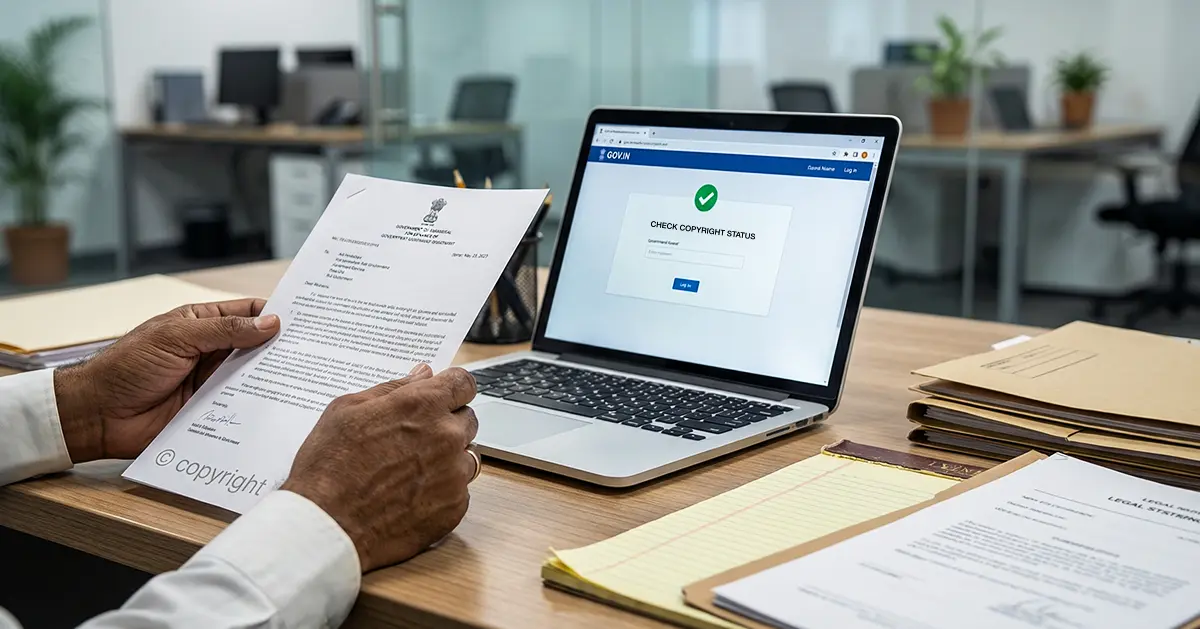
What is International Copyright?
International copyright refers to the protection of creative works across different countries through a web of agreements and treaties. Unlike domestic copyright, which operates within a single country’s legal system, international copyright enables the protection of creative works in many countries simultaneously.
This safeguard works on the principle of reciprocity – nations commit to defending one another’s creative work. For Indian creators, this implies that their creative works can find legal protection all across the globe.
The Fundamentals of International Copyright
International copyright isn’t governed by a single, universal law. Rather, it works through an interconnected set of international conventions and copyright treaties that create minimum protection levels among participating countries.
The basis of contemporary international copyright protection lies in several important international conventions:
- The Berne Convention (1886) – Creates an automatic right without registration
- The Universal Copyright Convention (1952) – Offers alternative protection systems
- The WIPO Copyright Treaty (1996) – Deals with digital environment issues
- The TRIPS Agreement (1995) – Connects intellectual property with international trade
India has been a signatory to these seminal copyright agreements, harmonizing its domestic regime with international copyright norms while preserving its distinctive Indian worldview.
India’s Journey in the International Copyright Landscape
From an Indian perspective, the relationship with international copyright has evolved significantly. After independence, India inherited the British copyright system but has since developed its distinctive approach to international copyright issues.
The Indian Copyright Act, 1957, amended several times to align with global IP laws, represents India’s commitment to international copyright protection while addressing local needs. The 2012 amendments particularly strengthened India’s position in the global IP ecosystem by incorporating digital rights and extending protection for performers.
Curious how much international treaties have reshaped the Indian Copyright Act to align with digital advancement? Delve into the Evolution of Copyright Laws: An Analysis for Full Insight.
Challenges in International Copyright from an Indian Perspective
Despite progress, several challenges exist when viewing international copyright from an Indian perspective:

- Digital Piracy: With increasing internet penetration, enforcing international copyright in the digital space remains challenging.
- Traditional Knowledge: Global IP laws often inadequately protect traditional cultural expressions and knowledge, a significant concern from an Indian perspective.
- Accessibility and Protection: Balancing access to knowledge with creator protection under international copyright frameworks requires nuanced approaches.
- Enforcement Mechanisms: Despite robust international agreements, enforcement of international copyright varies significantly across jurisdictions.
Encountering challenges in registering your work? We’re here to help resolve any issues and ensure your creative work is protected under Indian copyright law.
Benefits of Copyright Registration in International Markets
Although automatic protection is available under international agreements, Copyright registration serves important benefits for Indian authors venturing into overseas markets:
- Improved Juridical Standing: Registration is definitive proof of ownership, which goes a long way in solidifying your position in overseas infringement actions in untested juridical systems.
- Access to Legal Remedies: Most jurisdictions provide registered copyright owners with extra rights such as statutory damages and attorney’s fees, which are critical for Indian creators with limited funds to litigate.
- Protection by Customs: Registration enables creators to register their rights with customs authorities around the world, thus preventing the importation of infringing copies across international borders.
- Facilitation of Licensing: Formal registration provides ownership clarity that simplifies international licensing negotiations, allowing Indian creators to monetize their work through worldwide collaborations.
- Business Credibility: Registered copyrights indicate professional IP management to prospective partners and investors, improving the market standing of India’s new creative businesses.
- Preventing Brand Dilution: Registration facilitates the protection of creative works’ integrity in various international markets where monitoring can otherwise be difficult and expensive.
India’s Contributions to Global IP Discourse
India has moved beyond merely adopting international copyright standards to actively shaping global IP laws. At various international agreements forums, the Indian perspective has emphasized:
- Balanced approach to international copyright that considers development needs
- Advocacy for flexibility within global IP laws for education and research
- Protection mechanisms for traditional knowledge under international copyright frameworks
- Adaptation of copyright treaties to address technological advancement
Harmonizing International Copyright with Indian Realities
For Indian creators to flourish on the global stage, it’s vital to blend international copyright principles with local realities. Achieving this balance involves several key strategies:
- Education and Awareness: Empower creators, businesses, and consumers by deepening their understanding of international copyright standards and how they apply locally.
- Strategic Engagement: Actively ensure that India’s unique perspective is represented in shaping future copyright treaties and international agreements.
- Technological Solutions: Leverage cutting-edge technology to enhance the management and enforcement of copyright on an international scale.
- Cultural Considerations: Adapt global intellectual property laws to recognize and protect India’s rich cultural expressions and heritage.
Conclusion
As India continues its economic and cultural ascendancy, its voice in international copyright discussions will only grow stronger. By balancing respect for international agreements with advocacy for its unique needs, India can ensure that the international copyright system works for its creators while contributing to the development of more inclusive copyright treaties globally.
Contact RegisterKaro today for expert assistance with your copyright registration needs!




